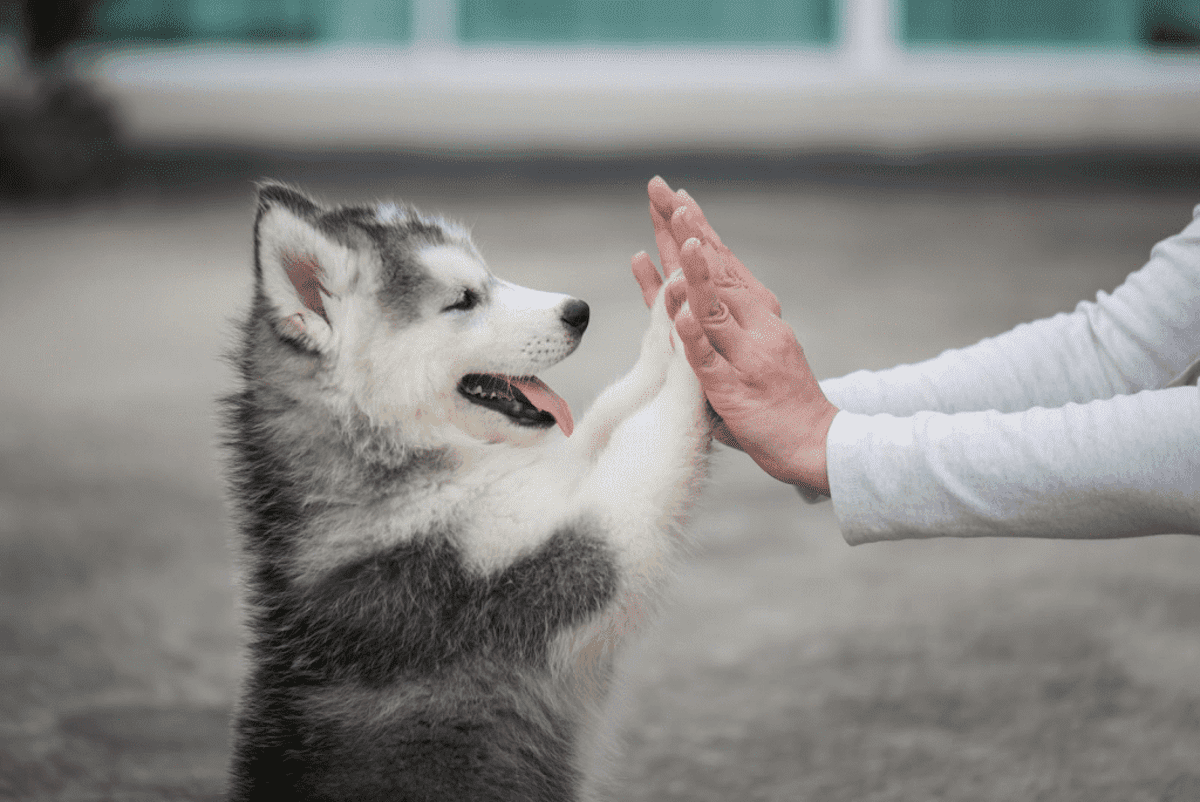Did you know that about 70% of American families have at least one pet?
If you are one of the millions who own a dog and love them, you may also think about welcoming a new addition to your family soon. But why stop at one dog when you can have an entire puppy pack?
There is a slew of benefits that come with having a new puppy in the house, such as companionship, unconditional love, and many more. In any case, there may likewise be a few difficulties en route.
Here is our guide to bringing home a new puppy and everything you need to know.
Provide Proper Training
Getting a new puppy is an exciting time for the whole family, but it can also bring some challenges. Potty training, socialization, and obedience training are two essential steps to ensure a puppy adapts well to his new home. Here are some of the things you need to know about proper training:
Potty Training
Potty training is a key step in bringing home a new puppy. Start by taking your pup to a designated potty spot outside at convenient times, such as first thing in the morning and once or twice during the day. If you catch them in the act of having to go, say “go potty” to help with the verbal cue of what you want them to do.
When they finish, reward them for doing their business in the right spot. Clean up any accidents using an enzyme cleaner to get rid of the smell and prevent them from returning to that spot again. If you are teaching dogs to pee outside, be consistent in the area you want them to go, and praise them every time they go where you want them to.
Provide plenty of opportunities to go outside, but also an area to fully contain them while you can’t watch them. If you have a yard, keep in mind that you may need to install fencing and shelter, as well as grow some grass, to treat them inhumanely.
Socialization Training
When bringing home a new puppy, socialization training is a must. Socialization should involve introducing your puppy to new people, children, sights, smells, and other animals. The goal is to create positive experiences and develop a confident, well-mannered puppy.
Not-socialized puppies tend to have increased fear, which can lead to aggression or avoidance behaviors if not addressed. Socialization classes can be a great first step for new puppy owners to take, as this will allow them to learn about and manage their puppy safely in a variety of settings.
Furthermore, introducing your pup to other people and animals outside of the home, such as on walks or at the pet store, can be a good way to ensure that they are associated while they are as yet youthful.
Obedience Training
Obedience training is important for any new puppy. It will help you to develop a strong bond and trust between you and your pup, as well as teach them manners and commands like sit, stay, come, and heel. You should start with basic commands, as this will provide a framework for your pup to understand your expectations.
You may need to practice several times a day to reinforce the commands. Positive reinforcement is the key, and consistent use of verbal commands and treats can help your pup understand and remember them.
When your pup has mastered the basic commands, you can then move on to more advanced commands. Don’t forget to reward your pup when they succeed and are patient; it may take a few attempts to get the hang of it!
Knowing the Breed of Your Puppy
Knowing the breed of your puppy is a major aspect of bringing home a new puppy. Different breeds are known for different things, such as size, behaviour, and health. Knowing the breed characteristics of your puppy can help you better prepare for your new addition to the family.
If you know what size your puppy will be when they reach its full potential, you can buy the right-sized crate, food, and accessories. Knowing the behaviour of your puppy’s breed can also provide insight into common health risks, exercise needs, and grooming needs that may come with the breed.
Preparedness of Your Home
Preparing your home before welcoming a new puppy is vital. To ensure your home is ready, check for any hazardous objects, such as nails and screws, outside. You should also secure the areas where your pup will play, eliminating any gaps or openings in fencing, sheds, and garages.
Indoors, cover any cords and store hazardous materials out of reach. Provide puppy-proof items such as large chew toys, bones, and treats to help keep your pup happy and satisfied in the event of teething or boredom.
Understanding the Cost of Ownership
Understanding the cost of ownership is a necessary aspect to consider when bringing home a new puppy. Before deciding to bring a dog into your home, you should calculate the start-up cost, annual expenses, and emergency services you may need. Also, include initial costs such as vaccinations, food, pet supplies, and spaying or neutering in your budget.
Annual recurring costs, such as food, preventative vet care, flea medication, and grooming. If a pet becomes sick or injured, the costs associated with diagnostics and treatment are things to consider.
Proper Nutrition and Dietary Habits
Proper nutrition and dietary habits are key when bringing home a new puppy. Fed the puppies two to three times a day with nutrient-rich puppy food that is mineral-balanced and age-specific. Puppies between two and six months old require the most energy from their diets to grow. When young, it is best to feed a puppy a high-quality diet that is specifically made for puppies.
Once the puppy is six months old or older, switch over to a nutritionally balanced adult formula. Pet health can be secured by limiting treats to no more than 10% of their diet. Consult with your vet and use the feeding guidelines on the packaging of your pet food to determine the amount that is right for your pup.
Do not overfeed your pup to avoid obesity that can cause puppy health issues. Remember to always keep fresh water available for your new pup. Proper nutrition and dietary habits are an essential part of bringing home a new puppy!
Understanding the Supplies You Need
When you bring home a new puppy, there are essential supplies you will need for the pup’s first weeks in your house. Before even getting the puppy, make sure you have a food bowl, water bowl, leash, collar, crate or kennel, cleaning supplies, toys and treats, and a puppy training guide. With a food bowl, remember to get a heavy one that won’t tip over when your puppy is eating.
Make sure the leash, collar, and tag are the proper size for your pup, and that the collar can be adjusted as the pup grows. The crate will be a safe place for your pet when you’re not home, and make sure it’s not too big for your pup. Have cleaning supplies ready for when accidents happen and stock up on toys and treats for entertainment.
Providing Adequate Mental and Physical Stimulation
When bringing home a new puppy, providing adequate mental and physical stimulation is essential. This can help ensure proper pet care and a happy and healthy pup. Starting right with plenty of activity, such as daily walks, is the first step. Depending on your puppy’s breed, exercise requirements will vary.
In addition, implementing mental stimulation into daily life is crucial. There are many interactive toys and treat puzzles available to help keep their curiosity alive.
It is also a good idea to introduce a variety of activities like fetch, obedience training, and agility courses as your pup matures. By mixing up the kinds of stimulation your pup gets, they should grow up well-rounded and satisfied.
Regular Veterinary Care
Regular veterinary care is an essential component of bringing home a new puppy. After finding a veterinarian and scheduling visits, a puppy should be seen at least twice a year for a comprehensive examination. Visits may be necessary if you find any medical issues.
Make an appointment for wellness vaccinations during the first year, followed by annual boosters. At each appointment, the puppy should be weighed, checked for parasites, and have a heart and lung exam performed.
Inform the vet of all inhabitants of the home about heart worm, flea, and tick prevention and vaccinations. A healthy diet and appropriate activity with the veterinarian, who can provide helpful puppy care advice based on the puppy’s age, breed, and lifestyle.
Make Sure You’re Ready When Before Getting a New Puppy
Getting a new puppy can be a thrilling, but challenging experience. With the right advice, you can make the transition easier. Make sure to research the type of dog that best suits your lifestyle, puppy-proof your home, and find a vet or animal hospital to get your pup vaccinated.
With the right preparation and love, you and your puppy will be making memories together in no time. Get started on your puppy-parenting journey today!
Do you want to learn more about other similar topics? Then, read more on our blog posts today.











